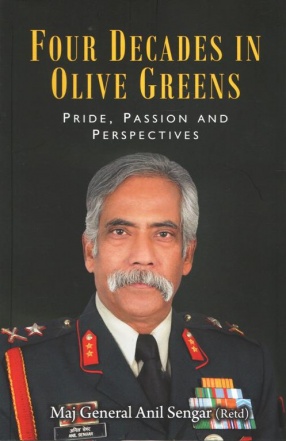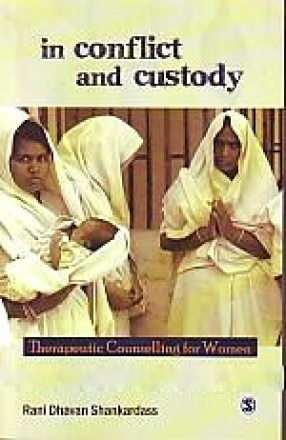There is no career like the military. You will never be rich, but you will have what no money can buy; a magnificent company of people who simply live by different sets of values. Buddies who will give their life for the man next to him, who has no blood relationship, but whose unwritten commitment to each other is far stronger than the marriage vows of a couple.
Written in his humoristic style, this book, Four Decades in Olive Greens: Pride, Passion and Perspectives is an interesting story of Maj General Anil Sengar, whose only ambition in life was to be a soldier for the love of the Olive Green uniform. He realised his potential early in life and rose above the ordinary by choosing to serve as a ‘soldier of conscience’ and stood by his values despite the challenges and risks throughout his service. The author’s pride and passion as a soldier are clearly visible. He demonstrates that, notwithstanding the dynamics of an extremely competitive military career, it is possible to live by the highest military values and yet succeed as a soldier, while making it fun all the way.
The book also gives an insider’s view of the internal dynamics of the Army, that is not exactly flattering. It is laid out in two parts. Part 1 is the author’s inspirational journey of accomplishing his goals through self-belief and surmounting odds. ‘Do not just live-leave your trail’ is a lesson in leadership as it demonstrates what can be achieved by selfless and value-based leadership. It contains his thought-provoking experiences, both pleasant and otherwise, and his so-successful command philosophy.
Part 2 deals with the author’s critical perspective on many sensitive issues that ail the Indian Army, which need immediate attention. These include aspects such as promotion policy, military professionalism, quality of senior leadership, awards and rewards and the dynamics of having women in the army.
The Army today stands compromised on trust amongst the combat arms and between the services and the army leadership. The fact that officers in droves and across all ranks seek justice through the courts against the promotion policy, speaks of the trust deficit in the Army policies and the redressal system.
The author`s critique is necessitated on the belief that the Army tends to remain in a state of inertia and rooted to the status quo unless nudged hard into action, even when the need for change is an operational imperative. Coming from one of its own, it is hoped that this book will trigger an introspection to honestly address issues which are eroding the basic fabric and foundation of this great institution and directly impacting its war fighting.





There are no reviews yet.